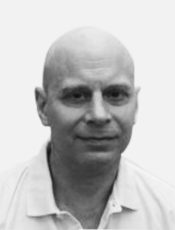As is true with RT's listing of top Russophobes for 2017, I take issue with some of its choices for that grouping in 2018.
When compared to the leading hardcore Russophobes, Michael McFaul comes across more as being a diva, seeking to maintain a niche within the anti-Russian leaning US establishment. McFaul is on record for saying that he doesn't accept the notion that Russia is inherently prone to negative attributes and bad relations with the West. Given that view and the existing status quo of folks out there, he's arguably not a top ten Russophobe.
Bill Browder is considered a Russophobe by a twist of fate. Prior to his falling out of favor with the Russian authorities, Browder was characterized by some anti-Russian leaning elements as a Kremlin shill. Browder's main focus of criticism is the Russian president and government at large. As is true of McFaul, the available choices indicate that Browder is arguably not a top ten Russophobe.
Several names come to mind that IMO should make a top ten Russophobe list for 2018. Granted, the difficulty in choosing people for such, as there're numerous individuals worthy of consideration.
Whether in 2017 or this year, it's surprising that the outgoing Trump administration UN Ambassador Nikki Haley, didn't get a top Russophobe ranking by RT. During her time as UN ambassador, Haley has spoken about the need to slap Russia, adding that the US and Russia can never be friends.
An acquaintance describes the Washington Examiner's Tom Rogan, as exhibiting the worst Anglo-American ignorance and arrogance against Russia. Rogan's often enough, unchallenged, Russia related commentary at some leading American media venues, is a tell all sign of US mass media shortcomings – when it comes to having a reasonably balanced presentation of views.
Rogan called for the Kiev regime to bomb the bridge linking Crimea with the rest of Russia. That advocacy of his received attention in Russia.
Rogan recently wrote a very inept piece on the situation with Orthodox Christianity in Ukraine. Whether he likes it or not, a noticeable number of people in the former Ukrainian SSR, don't oppose the Ukrainian Orthodox Church, which is loosely affiliated with the Russian Orthodox Church of the Moscow Patriarchate (ROC-MP). That established Ukrainian Orthodox Church (also known as the Ukrainian Orthodox Church of the Moscow Patriarchate, UOC-MP) didn't ask for the Kiev regime and/or the Constantinople (in Istanbul) Patriarchate to get involved with its matters. Note that the Washington Examiner appears to be otherwise prone to support the desire for a separation between church and state.
In conjunction with the Kiev regime, the Ukrainian Orthodox Church (formed in 1992) that sought autocephaly approval from the Constantinople Patriarchate, is headed by Filaret Denisenko, who for decades supported the Moscow Patriarchate's ties with the Orthodox churches in Ukraine, Belarus and Moldova. He changed course after not getting a promotion within the Moscow Patriarchate. A noticeable number of individuals in Kiev regime controlled Ukraine support Denisenko's changed position. That aspect doesn't deny the noticeable existence of those in that territory who support the UOC-MP.
The Constantinople Patriarchate doesn't have the same centralized authority as the Vatican. There's good reason to believe that some form of payola might be at play between the corrupt nationalist Kiev regime and the Constantinople Patriarchate. One is hard pressed to find any of the national Orthodox churches (recognized by the Constantinople Patriarchate) supporting the Constantinople Patriarchate's decision to grant autocephaly to the Ukrainian Orthodox Church. If anything, there's a near unanimous to complete agreement of these national Orthodox churches, favoring the position of the UOC-MP and ROC-MP, to not have the Constantinople Patriarchate grant an autocephaly status to the Ukrainian Orthodox Church.
Among the UOC-MP and ROC-MP faithful (as well as some others), there's a reasonable concern that the Kiev regime and Denisenko's church will use the Constantinople Patriarchate's decision as a basis to seize UOC-MP property. Further complicating matters is the existence of a third and smaller Ukrainian Orthodox Church, known as the Ukrainian Autocephalous Orthodox Church.
Contrary to Rogan, the ROC-MP and Russian government aren't nationalistically interwoven with each other, in the way that he so very inaccurately suggests. Despite the Kremlin's recognition of Abkhazia and South Ossetia as independent states, the ROC-MP recognizes Orthodox Christian property in these areas as being with the Georgian Orthodox Church. Likewise, the UOC-MP continues to maintain jurisdiction over Orthodox Christian property in Crimea, which is now part of Russia.
As I noted, the sports world has experienced a good deal of overtly anti-Russian advocacy. This situation leads to three individuals with top ten anti-Russian credentials.
Travis Tygart is a US legal sports politico, who has repeatedly sought a collective ban on all Russian athletes – something he has never collectively advocated against any other national group of athletes.
Sebastian Coe heads the International Association of Athletics Federations (IAAF), that still has a ban on Russia, unlike the International Olympic Committee. In 2016, Coe actively sought to have Russian drug cheat turned "whistleblower", Yulia Stepanova compete in the Rio Summer Olympics, unlike the clean medal contending Russian track and field athletes, who were unfairly banned from that competition. Coe apparently approves of Stepanova uncritically participating in a German aired propaganda film, that made a broad unproven claim against Russia's top track and field athletes.
Rune Andersen serves under Coe at the IAAF. Andersen suggested the possibility of banning clean Russian track and field athletes from competing as neutrals, if the Russian sports authorities don't acknowledge all of the core claims made in the quite faulty McLaren report.
Photo: flickr









